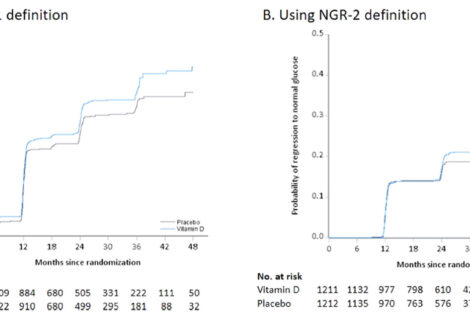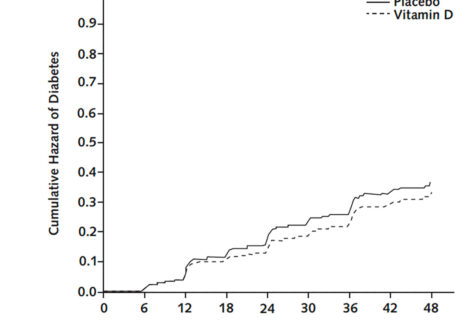Vitamin D regulates glucose homeostasis pathways, but the effects of vitamin D on β-cell function remain to be fully elucidated. This secondary analysis investigated the effects of vitamin D3 supplementation on insulin sensitivity and β-cell function.
In the entire study cohort, Vitamin D supplementation with vitamin D3 for 24 months did not improve an OGTT derived index of β-cell function in people with prediabetes not selected based on baseline vitamin D status; however, there was significant benefit among those with very low baseline vitamin D status, defined as blood 25(OH)D level <12 ng/mL. This result was consistent with our finding in the main study that vitamin D is most effective at lowering diabetes risk among those with very low blood 25(OH)D levels.
This manuscript was published in the Journal of Clinical Endocrinology & Metabolism.

















